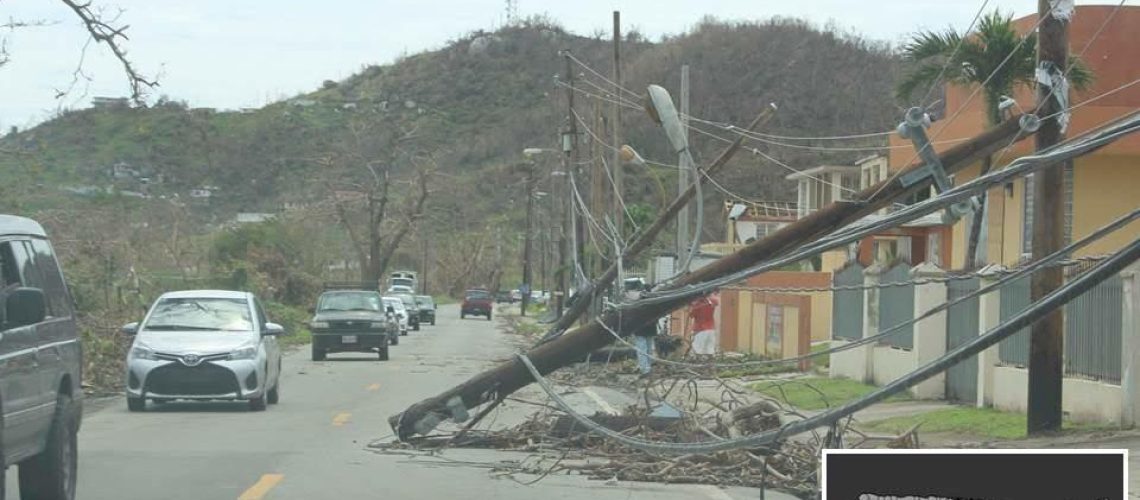The unincorporated territory continually suffers from grid blackouts following the landfall of hurricanes.
The Biden Administration has issued a request to Congress to fund a $3 billion buildout of rooftop solar and energy storage in Puerto Rico to make a more climate-resilient energy grid.
The funds would be provided to the Grid Deployment Office account of the Department of Energy (DOE), providing grants to low-income households in Puerto Rico to purchase and install solar and battery storage systems and energy distribution technology. The administration said these systems can increase resilience for households during blackouts and outages resulting from natural disasters.
Puerto Rico has suffered widespread blackout after blackout as hurricanes continue to intensify and knock out existing infrastructure. In 2017, Hurricanes Irma and Maria led to long-lasting widespread blackouts and the deaths of over 4,000 people. The damage to the grid took over 11 months to repair and reactivate.
“Equipping the most vulnerable households with rooftop solar could quite literally save lives. These families deserve the same access to energy security as the people who are already buying solar panels and batteries in droves,” said Raúl Grijalva, House Natural Resources Committee Chair.
A growing number of Puerto Ricans have adopted rooftop solar, but the majority continue to rely on the central power grid or backup diesel-fired generators. Electricity blackouts have exacerbated public health crises and researchers estimate there was a 62% increase in mortality in the three months directly following Maria’s landfall.
Following the landfall of Hurricane Fiona in 2021, solar-plus-storage systems played an instrumental role in keeping the lights on while the centralized grid was down. Sunnova Energy International reported that its solar and battery storage systems powered the homes of over 30,000 customers in Puerto Rico during the aftermath of Hurricane Fiona, from September 18 to October 1, 2022, while the grid was down.
During those two weeks, most residents in Puerto Rico were without power, Sunnova reports that its SunSafe solar-plus-storage systems generated a total of nearly 2 GWh of energy total with 3.4 million hours of aggregate back-up power, or an average of 128 hours of power generated per household. These customers averaged 5.3 days of solar-plus-storage battery backup with many residents remaining dependent on their Sunnova system for more than 10 days.
“Out of our more than 30,000 Sunnova SunSafe systems in Puerto Rico, only 59 required repair in the two weeks following the Hurricane, and Sunnova dispatched crews immediately to repair or replace non-performing systems, whether they were leased or owned,” said Michael Grasso, chief marketing and growth officer of Sunnova. “Looking ahead, we see an opportunity for distributed power to play a larger role in Puerto Rico by networking our solar + storage systems into powerful virtual power plants that would complement the centralized electric system and drive increased grid resiliency.”
The Biden administration also requested $35 million is for technical assistance to other agencies, local entities, and communities throughout Puerto Rico to assist with energy recovery and grid modernization activities; and salaries and travel expenses for dedicated DOE staff for Puerto Rico. These activities include convening stakeholders to prioritize near-term investments and develop mitigation strategies against future storms and working directly with communities to design specific energy solutions.
Analysis by the National Renewable Energy Laboratory (NREL) found that Puerto Rico has 40GW of solar potential. NREL modeled pathways to the targets set by Puerto Rico’s Act 17: 20% renewable generation by 2022, 40% by 2025, 60% by 2040, and 100% by 2050.
NREL reported that Puerto Rico has 20 GW of utility-scale solar potential, mostly along the coasts, and 20 GW of distributed solar potential. Just 10 GW of solar could meet Puerto Rico’s needs, as estimated by Solar + Energy Storage Association (SESA) president PJ Wilson.
SESA’s Chief Policy Officer Javier Rúa said the NREL study of Puerto Rico’s solar potential “represents the commitment that we’ve seen by the Biden administration and the agencies to help Puerto Rico fulfill its self-legislated goal to 100 percent renewables.” Wilson said the study will be “a big step towards every Puerto Rican having solar and storage and completely resilient power during the next hurricane.”



